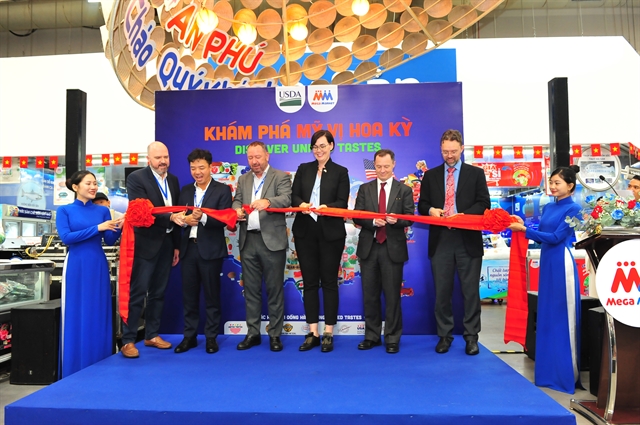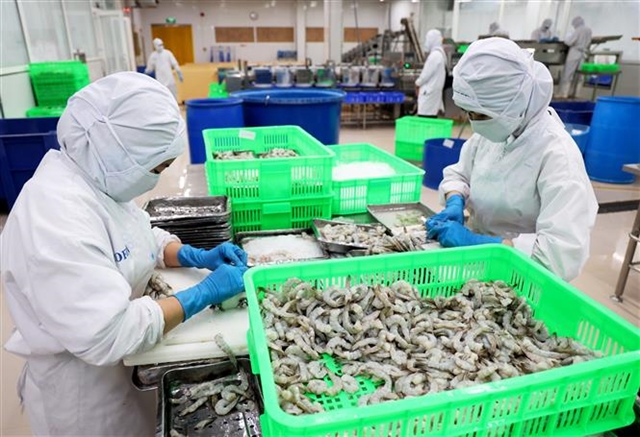 Economy
Economy

 |
| An export shrimp processing line in HCM City. — VNA/VNS Photo |
HÀ NỘI — Since the beginning of 2025, the EU’s food and feed safety system has issued 12 warnings regarding Vietnamese food and agricultural exports, according to the Việt Nam SPS Office under the Ministry of Agriculture and Rural Development.
These products have been handled in the form of warnings, recalls or even destruction due to non-compliance with the EU’s strict regulations.
One of the main reasons is that businesses have not registered products containing ingredients classified as ‘novel foods’ under EU regulations.
In particular, Germany and Austria detected products including dried basil seeds (used in beverages) and apple snail meat, which had not been licensed by the EU. As a result, these products were recalled or withdrawn from the market.
Besides, some businesses misdeclared product ingredients, leading to mislabeling of allergens.
For instance, frozen breaded shrimp failed to declare eggs (present in the coating), and organic cashew powder did not mention peanuts, resulting in product recalls.
Using illegal additives or exceeding the prescribed level is also a problem.
In addition, some businesses violated the regulations on ‘composite products.’ They failed to conduct veterinary quarantine or declare animal-derived ingredients at customs checkpoints.
According to the Việt Nam SPS Office, most violating businesses were small and medium-sized enterprises (SMEs) that lacked sufficient knowledge of EU regulations on novel foods and composite products.
Large enterprises, especially foreign direct investment (FDI) companies, were less affected as they typically have specialised technical teams that promptly update market regulations.
To minimise violations, the SPS Office advises businesses exporting to the EU to study the relevant regulations thoroughly. They should understand Regulation (EU) 2015/2283 on novel foods and the list of approved novel foods under Regulation (EU) 2018/1023.
Additionally, businesses must ensure proper allergen labelling and additive usage.
“Adhering to EU food safety standards protects consumers and safeguards the reputation and competitiveness of Vietnamese products in the international market,” the Việt Nam SPS Office emphasised. — VNS




